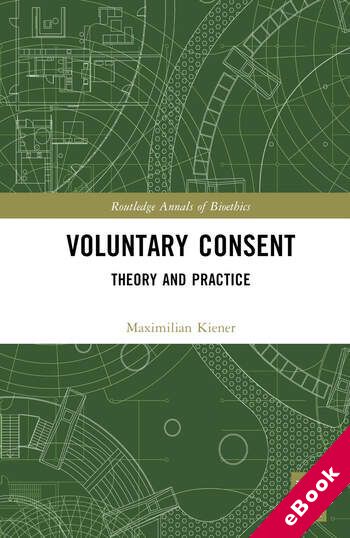
The device(s) you use to access the eBook content must be authorized with an Adobe ID before you download the product otherwise it will fail to register correctly.
For further information see https://www.wildy.com/ebook-formats
Once the order is confirmed an automated e-mail will be sent to you to allow you to download the eBook.
All eBooks are supplied firm sale and cannot be returned. If you believe there is a fault with your eBook then contact us on ebooks@wildy.com and we will help in resolving the issue. This does not affect your statutory rights.
Voluntariness is a necessary condition of valid consent. But determining whether a person consented voluntarily can be difficult, especially when people are subjected to coercion or manipulation, placed in a situation with no acceptable alternative other than to consent to something, or find themselves in an abusive relationship.
This book presents a novel view on the voluntariness of consent, especially medical consent, which the author calls Interpersonal Consenter-Consentee Justification (ICCJ). According to this view, consent is voluntary if and only if the process by which it has been obtained aligns with principles of interpersonal justification. ICCJ is distinctive because it explains voluntary consent neither as a ‘psychological’ concept indicative of the inner states of a person’s mind (e.g. willingness or reluctance) nor as a ‘circumstantial’ concept indicative of a person’s set of options. Rather, ICCJ explains the voluntariness of consent as an ‘interpersonal’ concept requiring the absence of illegitimate control within the interaction between the person giving consent and the person receiving it. In so doing, ICCJ further develops the notion of interpersonal justification, known from contractualist theories in moral philosophy, and introduces it to the debate on consent. The author employs a top-down approach, defending ICCJ’s key characteristics on the basis of general theoretical arguments, as well as a bottom-up approach, supporting ICCJ in its application to clinical challenges such as nudging and manipulation, living organ donation, and clinical trials.
Voluntary Consent will appeal to researchers and advanced students in normative ethics, bioethics, philosophy of law, behavioural psychology, and medicine.